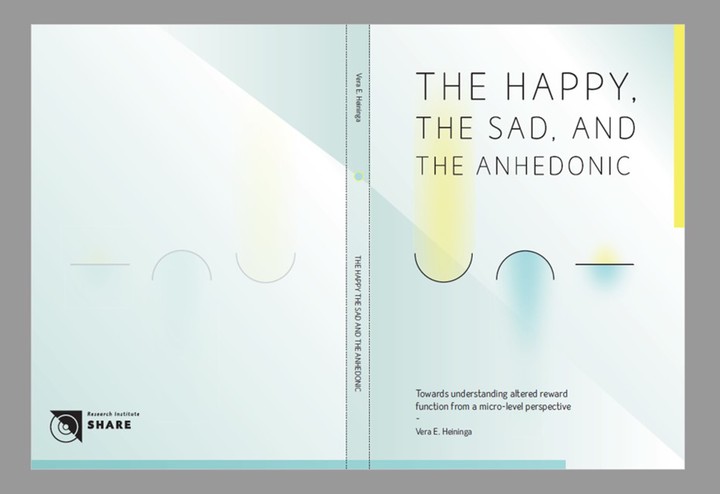The happy, the sad, and the anhedonic

The happy, the sad, and the anhedonic: Towards understanding altered reward function from a micro-level perspective
Anhedonia, the loss of pleasure, is highly prevalent in both clinical and non-clinical populations but far from fully understood. Anhedonia was recently reconceptualized into an impaired ability to pursue, experience, and learn about pleasure. Although plausible, a major caveat of this reconceptualization is that it is almost exclusively based on studies that use a nomothetic approach to knowledge (macro-level perspective), largely neglecting how altered reward function in anhedonia takes shape idiographically (micro-level perspective).
This PhD thesis sheds a first light on altered reward function in anhedonia from a micro-level perspective. The perspective is provided by the use of recent technologies (e.g., smartphones) and Experience Sampling Methods (ESM). ESMs allow for reliable sampling of moment-to-moment experiences, and holds considerable promise for improving the current understanding of anhedonia.
In Part I, we investigated anhedonic individuals´ ability to pursue pleasure (chapter 2), to experience pleasure (chapter 3), and to learn from pleasurable experiences (chapter 4). Differences were found in some, but not all, aspects of reward function. Scientific studies often contradict each other, and Part II of this PhD thesis addresses two problems related to research reproducibility: Different operationalizations of the same construct (chapter 5) and chance capitalization (chapter 6)